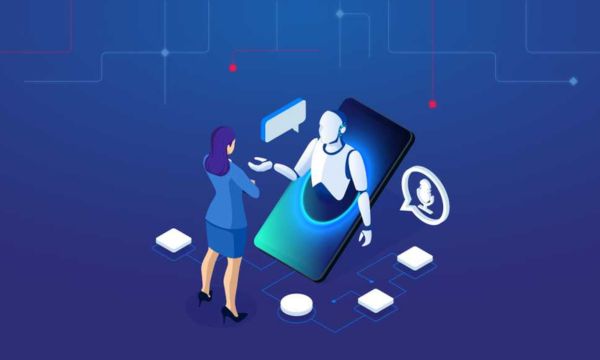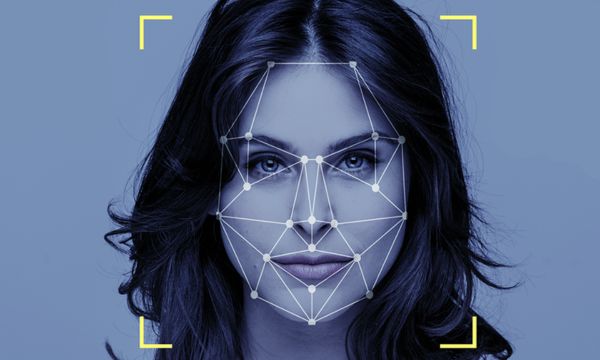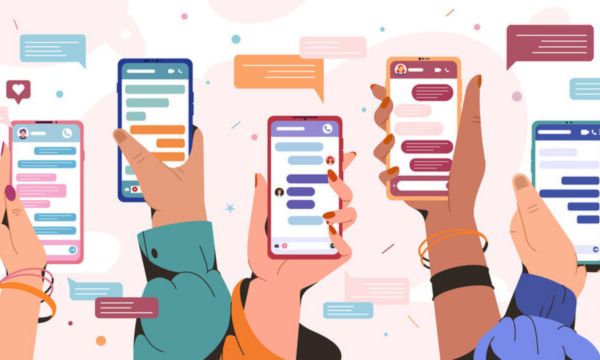ad
The latest technological innovations: SEE the curiosities! If you like to stay tuned, you certainly won’t want to be left out.
There is no doubt that technology has changed our lives, routine and even the society in which we live. In these last 10 years we can mention from virtual assistants that use AI (Artificial Intelligence) to even electric cars.
As it is also visible that our relationship with technology is becoming deeper and deeper. And I say this with conviction, as we become more and more dependent on smartphones, to name just a few devices. With all certainty, from now on, technological innovations will be much more present in our routine, imposing behaviors or even modifying them.
Now, how about we take a look at some of the latest technological innovations that have emerged over the years? Check out!
Virtual assistants

Of course our list of technological innovations had to start with them!
Just a few years ago, being able to control different devices using voice commands was a completely remote idea. The most popular ones are: Siri (2011), Cortana (2014) and Google Assistant (2016). They brought a world of possibilities for the use of devices little seen until then.
In a world where life is increasingly busy, virtual assistants have offered countless possibilities for interaction to their users, such as playing their favorite playlist, scheduling meetings, setting the alarm, or even something as simple as turning on the lamps in the House.
Thanks to AI, just give a voice command to communicate with the different operating systems without having to press anything or look at a screen.
It does not stop there! Some assistants, such as Alexa (2014), can recognize up to ten different voices, and store each user’s phonebook and music preferences.
Facial recognition

Does anyone remember that this already appeared in some old movies? Now it is a much more accessible reality.
This type of technology learns the unique traits of a given person to then accurately and securely identify them. Nowadays, its use is very common for unlocking smartphones.
This technology is also widely used by banking applications when it comes to validating access to the app or even when carrying out transactions with less risk of cybercrime and risk of fraud.
Furthermore, even in some more developed countries, this innovation is already used in some types of public surveillance.
Social networks and messengers

Obviously, social networks could not be left out. Does anyone remember what life was like before them? Well, they are part of our daily life.
From the outset, social networks marked a before and after when it comes to interaction and communication between people, especially popular platforms such as Twitter, Instagram and Facebook.
In fact, there are billions of people connected around the world, which has made responsible companies one of the most valuable on the market.
Likewise, messengers have also evolved a lot over the years, as is the case with the acclaimed WhatsApp. Founded in 2009, the service grew even more after it was acquired by Facebook, and believe me, there are already more than 2 billion users worldwide.
Video and music streaming

And what about the streaming service? The simple fact that it is no longer necessary to download anything else on our cell phone already makes all the difference. A few years ago, in order to listen to a simple song, it was necessary to follow a whole procedure. Now CDs and music downloads are a thing of the past.
The streaming service offers its users online playback, with millions of tracks available in high quality. Among the most popular platforms we can mention Spotify, Deezer, Amazon Music and YouTube Music.
Also, when it comes to audiovisual, visual content platforms have left VHS tapes and video rentals in oblivion. It is evident that in the last 10 years, the way we consume series and movies has completely changed. And that’s how the famous Netflix came about, which currently has more than 5 million active subscribers.
What does the future hold for us?

With so many technological innovations, many people are already asking themselves this question. And in that sense, some futurists already make their predictions of new technologies that we can expect in 2050. See some of them below:
- Drones as a delivery method: Many already claim that this is not yet working due to legislation.
- Advancement of Artificial Intelligence: Machines with self-awareness may already be a reality in 2025
- Spaceships to Mars: Studies indicate that perhaps in 2030 this will already be possible.
- Prostheses will give humans new abilities: The production of prostheses will get more advanced, giving new skills to people.
- Robots at home: Do you remember the cartoon The Jetsons? Around 2030 it could become a reality in the daily lives of many households.
Conclusion
In this age of rapid technological advancement, the world around us is evolving at an unprecedented pace. From virtual assistants to facial recognition, social networks, and streaming services, technological innovations have woven themselves into the very fabric of our daily lives. As we reflect on the remarkable progress of the past decade, we can’t help but wonder what the future holds. Predictions range from drone deliveries to self-aware AI and even human colonization of Mars. The possibilities are vast, and while we can’t predict the future with certainty, one thing is clear: technology will continue to shape our world, and our role is to embrace it, adapt to it, and envision a future where innovation serves to enhance the human experience.
And now tell me, what do you think might come around? Let me know in the comments!
Frequently Asked Questions (FAQ)
Q1: What are virtual assistants, and how have they revolutionized our interaction with technology?
A1: Virtual assistants like Siri, Cortana, and Google Assistant have transformed how we interact with devices. They allow users to control various tasks through voice commands, making our lives more convenient and efficient.
Q2: How does facial recognition technology work, and where is it commonly used?
A2: Facial recognition technology learns unique facial features to securely identify individuals. It’s commonly used for smartphone unlocking, banking applications, and even public surveillance in some countries.
Q3: How have social networks and messengers changed communication?
A3: Social networks like Twitter, Instagram, and Facebook have revolutionized how people connect and communicate worldwide. Messengers like WhatsApp have also evolved, connecting over 2 billion users globally.
Q4: What are streaming services, and how have they transformed entertainment consumption?
A4: Streaming services like Spotify, Deezer, and Netflix offer online access to music and video content, eliminating the need for downloads. This has drastically changed how we consume music, movies, and TV shows.
Q5: What technological innovations can we expect in the future?
A5: Futurists predict exciting advancements, such as drone-based deliveries, self-aware AI, human colonization of Mars, advanced prostheses, and domestic robots. The future holds incredible possibilities.
Be sure to check out our article: Learn to identify plants using your cell phone camera. You’ll be surprised at how it will help you clarify doubts on the subject. Additionally, we have a variety of engaging topics to share. Explore right now!


